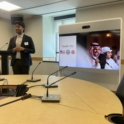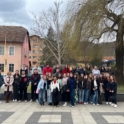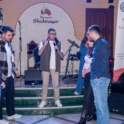Abdulaziz reflects on the highlights from serving as a mentor for CEW.
STORIES
The W Curve
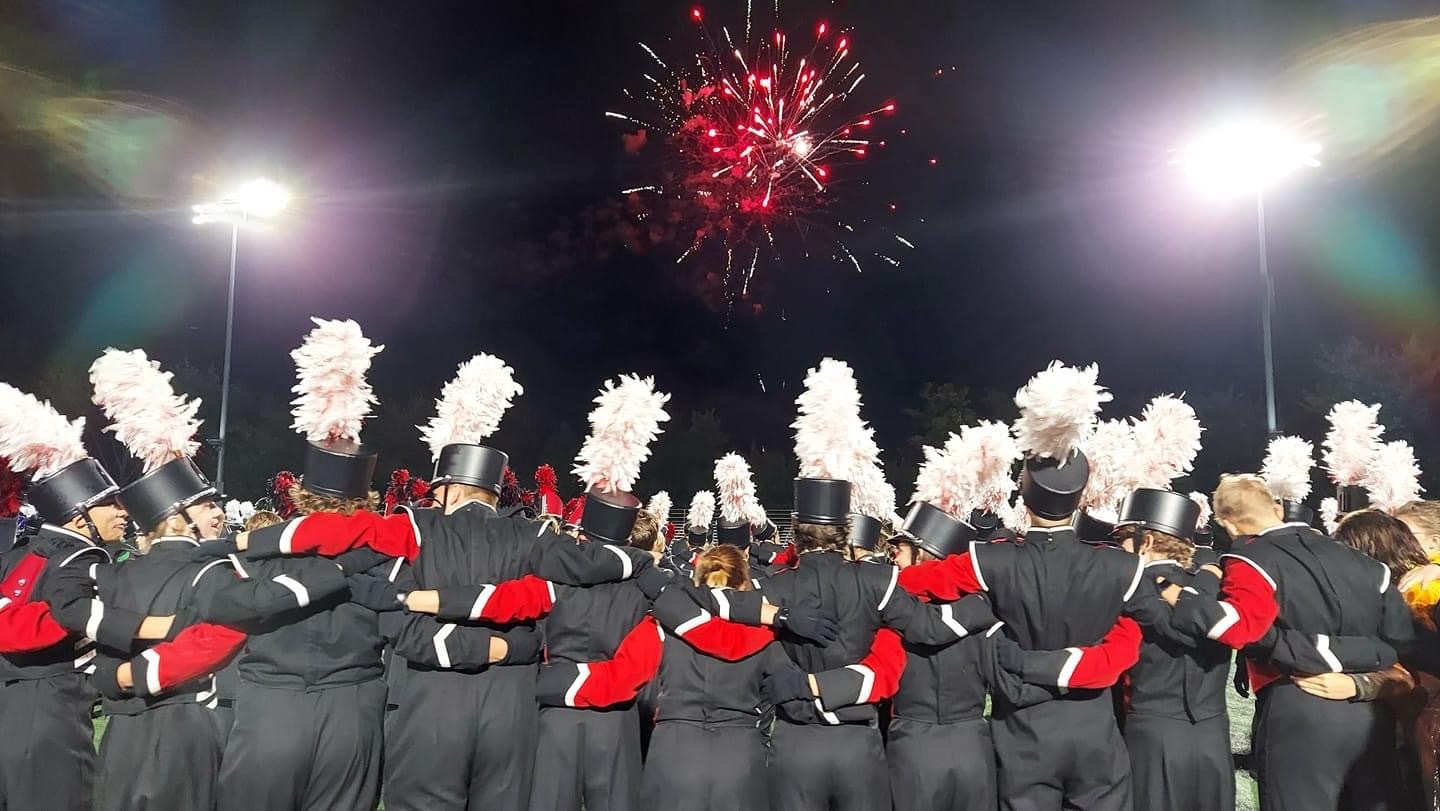
By Ichrak Abboud (YES 2021 – 22, Tunisia, placed by IRIS in Wever, IA)
“Culture shock is a series of emotional reactions precipitated by the anxiety that results from losing all our familiar signs and symbols of social intercourse.” - Kalervo Oberg, a Canadian anthropologist who researched the culture shock effect.
I had the opportunity to spend a year in the United States as an exchange student with the YES program, and I can affirm that this curve of adaptation was an unavoidable part of the experience. Let me take you through my beautiful journey, where I grew and discovered myself, and went through this rollercoaster of a curve; scary but enjoyable.
1- The Honeymoon Phase
My first day in the United States was a living dream. After three days of traveling, four planes, and five international airports, I made it to my host community in Des Moines. I got off the plane with my new Japanese friend that I randomly met on board, ready to start my journey. I was very nervous, and anxious, but excited about meeting my host family. I looked around, searching for a fellow YES program student with a blue shirt, with whom I exchanged nervous eye contact. “Here we go, see you next year guys”, one of us whispered with a shaky voice.
I finally saw my host family. My host mom with her beautiful blond curly hair, my two little sisters whom I hugged so tight, my host dad with his awesome smile. The placement organization president also greeted me, saying, “I am not a random stranger, I am here with your PO.”
We took some pictures outside the airport and started driving to my host grandparents’ house in Oskaloosa, Iowa. My first impression of Iowa, watching through the car’s window, was being impressed with how many corn fields there were. Miles upon miles of corn fields. In Oskaloosa my sisters and I had frog-shaped cookies and cheese pizzas and talked about everything. I met my host grandparents, and I realized how blessed I was to be in the States.
We made it home around midnight. After spending three days in airports, all I wanted to do was take a hot shower. But of course, American showers were different. Guess who spent more than an hour on the bathroom floor, watching YouTube videos to try to figure out how to turn on the shower? Me.
The next morning, I woke up, looked around in my new room and could not believe that I had made it to the U.S. I unpacked, then went shopping with my host family. I soon joined a marching band camp at school and had an awesome experience playing in the pit. That was where I met my awesome best friend Maggie, the person that supported me through everything to this day. Everything was really like a honeymoon. Every day felt unreal, it felt like a movie.
2- Starting to spot the differences
I already knew, before traveling to the other side of the globe, that my culture and the American culture are different. I went through several pre-departure orientations that prepared us for the challenge. But when you actually live the experience, you notice small changes in your life that would unconsciously trigger your fight or flight responses. You start facing some small daily problems that make you realize that being independent is sometimes tough.
There were small differences. It was funny how hard I struggled to learn to open American windows and turn on showers. I once put so much soap in the washing machine that huge soap bubbles filled out the laundry room. And after months of using the vacuum, I realized that I never actually turned it on.
There were positive and negative differences. The positive ones were mainly about how happy and simple Americans were. And how they were very accepting and never judged me. Later in the year, the popularity of exchange students at school started to fade, and we simply became normal student at school with a normal daily routine.
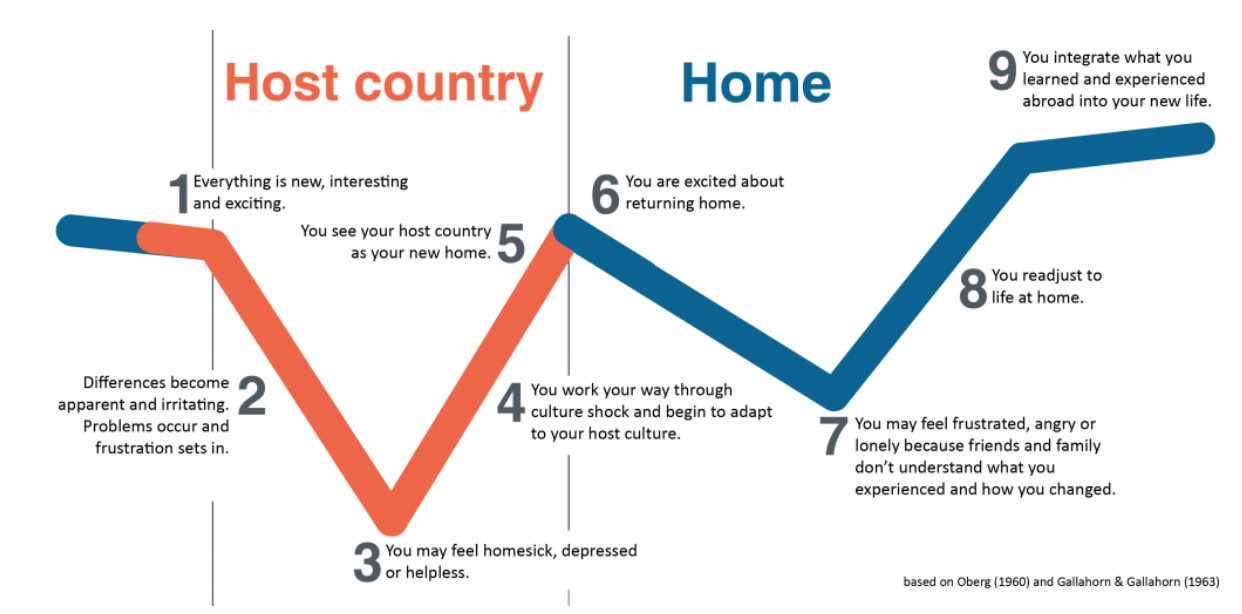
3- Homesickness
Homesickness was always a beast that, as exchange students, we feared; it was the monster the alumni always warned us about and tried to prepare us to fight. I personally did not suffer too awfully from homesickness, although I felt it during important holidays and celebrations in my home country.
I went through a short state of helplessness, where I felt like I was not doing enough, I was not engaged in enough activities, was wasting my precious time, and wasn’t bonding with my community. Perhaps the main reason was the mistake of comparing myself to other exchange students. As teenagers or simply as human beings, we tend to look around us and try to fit into what other people achieve. I started settling down and, therefore, losing friends I thought I would stick to the whole year. I started to settle into a routine, and I felt physically exhausted.
4- Adapting to the host community
After spending time with myself, I realized that it was only a year, and that I must make it the best year of my life. I decided not to spend my time trying to do what other people do, but instead focus on what I am already involved in and improve it. I found myself very passionate about music and art, so I was part of a symphonic band, a jazz band, a marching band, and a show choir. I decided that this is what I wanted, and this is where I enjoyed myself the most.
By sticking to those activities, I started forming an awesome group of friends, with whom I share my passion for music, science, and humor. I started hanging out with them more, going to music competitions together, bonfires, movies, etc. I started working hard, spending hours and hours sitting at the kitchen table working on essays, standardized tests, and competitions.
Working on my essays and listening to rock music with my host dad started to become my daily routine. I realize now how important those little moments were and how good of a memory they make. I enjoyed work and competitions, and my host parents were the most supportive. Whenever I had an important competition, my host mom would slide a note in my bag wishing me luck and saying how proud she was of my achievement. I would carry that little note and place it in my heart, and it would make my entire day.
I started making more time to spend with my host family, with whom I developed an incredible bond. I realized that communicating with my host parents about my problems was the best way to not only solve the issues, but also develop a strong relationship. If I was told a year ago that I would deeply love “strangers” like I do today, or that I would have family on the other side of the world, I wouldn't have believed it. I am so grateful to have a family that I could rely on, talk to, and love. From them I learned skills that helped me move forward with my life and be the young woman I am. From simple tasks like fishing, cooking, crocheting, and playing cards, to complex tasks such as communicating and organizing, my host family devoted their time and effort to teaching me and supporting me through my best and worst. And I realized that bonding with my host family was the key to adapting to my host community.
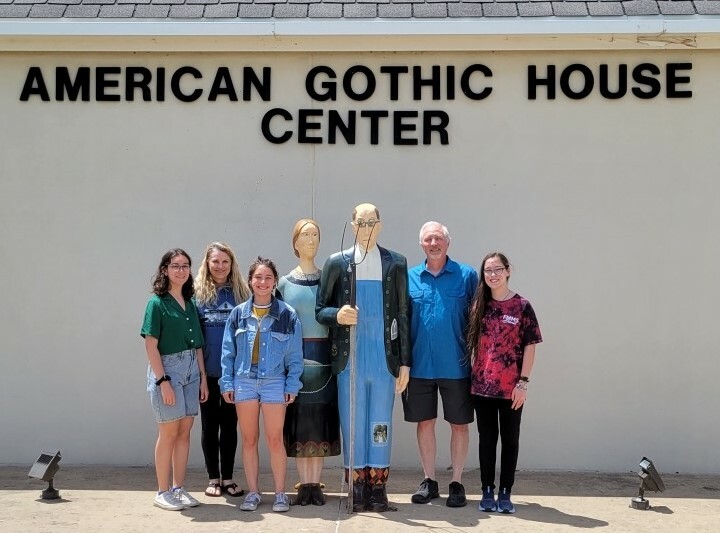
I loved sitting around the dinner table, each one of us talking about their day. I loved when my host dad said that his favorite part of the day was having supper with us, and I loved when my little sisters said that their favorite part of the day was “band”. I loved when my host parents clapped and complimented me every time I played the piano, and I loved how my host mom always asks me about the name of the piece I was playing. I loved our Sunday night routine, watching a movie and eating crackers and cheese. I loved spending hours and hours around a puzzle that would take us weeks to finish, and I loved playing games, laughing about how awful Dad is at drawing, and how good Mom is at winning every game.
I am endlessly grateful to have awesome parents and incredible siblings on the other side of the world. I ended up realizing that my host country is now my home. My feeling of not fitting in faded away, and I found my happiness in this country, this school, this family, and this person: myself.
I had never been this happy in my life; however, it was time to go home.
5- Going home
After spending a whole year building up the perfect life and routine, loving people, getting used to places and habits, it was time to pack up and leave it all behind. In my experience, I felt the small excitement of going back home, but the thought of leaving my host community and my life in the U.S. terrified me.
I postponed packing; I didn't even want to think about it. My last week was a succession of mixed feelings. It was a beautiful last week of saying goodbye to my loved ones. The last day was unforgettable. After packing my luggage in the car, I spent an amazing day with my host family. We visited the American Gothic House and went to the mall for lunch and a movie. At 5 am the next day, they drove me to the airport where we said goodbye, promising each other that we would visit. That was a tough moment in my life where I had to let go of my loved ones to continue my journey.
6- Adjustment at home
Seeing the Mediterranean Sea from the plane’s tiny window made me feel very nostalgic. We landed in my country, and I finally hugged my family for the first time in ten months. Still, I kept feeling homesick. It felt like I did not belong there, and my heart was on the other side of the globe.
Relearning how to adjust to being home was a process. I mainly tried to stay busy by hanging out with my friends and taking drivers' ed classes. I gave myself time to process my feelings and to treat my experience of re-entry as if it was the beginning of my exchange year. I started to feel like myself again, and I came back from the United States with skills and ideas for projects that I would love to implement in my country.
In a nutshell, this experience was the best year of my life. I discovered myself and my abilities, and I met people that changed my life forever. I am grateful to the YES program for providing me with these wonderful opportunities that marked me and made me a better person.


